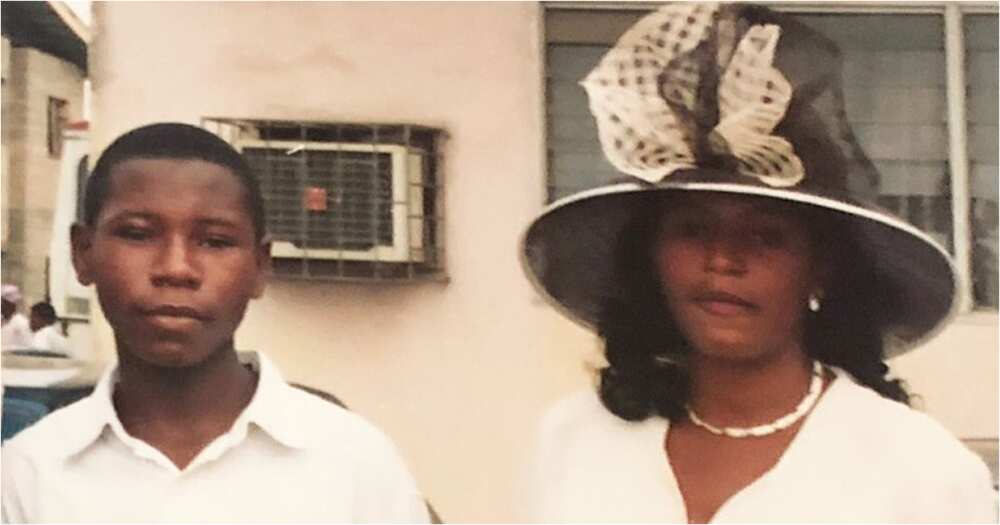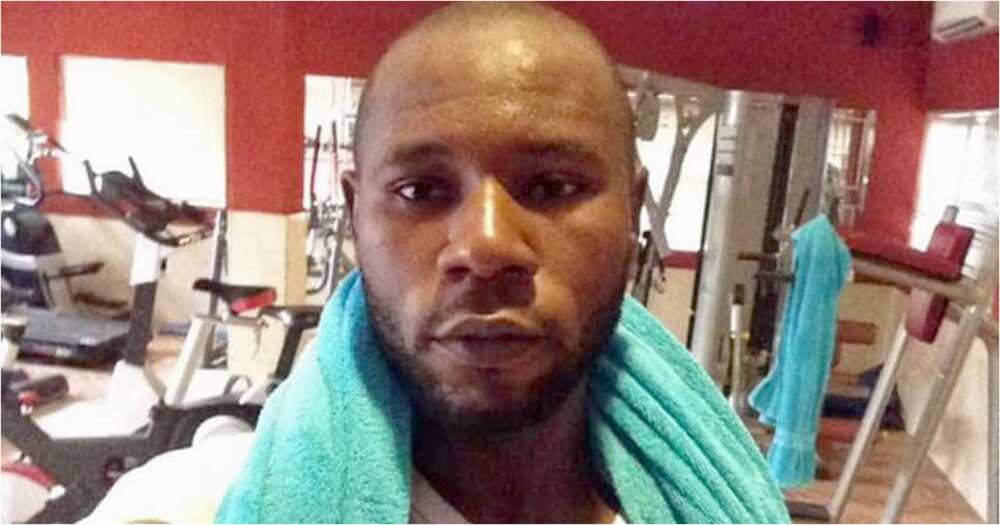A family had been put into sorrow after their son, Samuel Abdulraheem, went missing at the age of seven while he was riding a bicycle outside his family home in Kano state.
Abdulraheem was not found by his family until six years after at Canaanland, the main church for Living Faith Church Worldwide, located in Ota, Lagos state.
The little boy had come from a large family, his father a Muslim architect and hotelier, had 17 children and four wives. His favourite sister, Firdausi, who was 21 years old at the time Abdulraheem was kidnapped revealed to BBC that they had tried everything to find him.
According to her, she was not made aware of the situation immediately due to the fact that she was still in university studying. She noted that she began to suspect something was wrong when her favourite sibling did not run to the phone to talk to her whenever she called like he always does.

Boy finds his way back home after 6 years of being kidnapped in Kano to assist beggars in Lagos Source: BBC
Source: UGC
Suspecting something was wrong, Firdausi traveled home unexpectedly and found out the sad news. She said: "At first, my father had the nanny arrested, but after investigations, they let her go."
After searching for a while with the help of the police and family, the father asked the family to accept that Abdulraheem was dead.
However, Firdausi refused to give up and she dedicated her project in school to her missing brother. After graduation, she moved to Lagos to search for job vacancies and even converted to Christianity.
One day she was at Canaanland attending the Winners Chapel annual 5-day Shiloh service when she found her brother. Firdausi was trying to set up a stand to sell tye and dye clothes made by her mother to church members when a boy being held onto by a blind beggar came up to her.
READ ALSO: Escaped Chibok girl bags associate degree as she graduates from US community college
Abdulraheem could not remember how he was kidnapped, all he remembered was the train ride to Lagos state, where he was delivered to a woman, who rented children out to beggars for N500 per day.
As a 30-year-old man now, Abdulraheem believes he had been put under some kind of spell that made him devoid of emotions. He said he never thought about home once, all he did was think about how to work hard for the beggars and survive.
He said: "I am not sure I had emotions then, Just a zombie that knew he had to wake up and lead a beggar out. Make money, eat food and sleep, and the same routine the next day."
Abdulraheem talked about how he was hired by different beggars for a period of a week or a month. He said he and beggars slept alongside others in various public spaces. He said: "I was like a slave. I couldn't say I wanted to go and do anything. I had to be around always."
Talking about his experience as a beggar's assistant, he said: "I was always hungry. During the daytime when you work, you hardly sit down to eat. I didn't feel the beggars were bad. They wake up, beg, the way people wake up and go to work."
"There were times when you get so tired and you start bypassing people, but blind people are very sensitive - their hearing - so they pick up sound. Sometimes they would twist your shoulder and say: 'There is someone there. Why are you moving away?' They try to make as much money as they can."
PAY ATTENTION: Get your daily relationship tips and advice on Africa Love Aid group
Speaking on meeting his sister, he said it took a while to know who she was. "It took a while but I knew that she was someone I knew - that this person was someone related to me."
He was 13 years old at the time he was found, and it was hard for him to return back to living normally. He went back to his father's home while his sister continued to take care of him.
The 13-year-old had come home with boils and rashes that gave off a foul stench. His right shoulder remained bent for more than a year from years of being gripped by beggars. After years of no education, it was hard to get him into any school as many rejected him and said he was too old for primary school.
A school led by a proprietor, who had been in Canaanland when he was found, finally agreed to take him. He excelled in school and within a year he passed his entrance exam to secondary school.

The little boy is a man who works as a construction worker now Source: BBC
Source: UGC
In secondary school, he spent only 3 years as he was an exceptional student and by 17 years old, he sat for his university entrance exams and gained admission into Ahmadu Bello University to study chemical engineering.
Due to his intelligence, Abdulraheem became popular for helping students with assignments and he was unfortunately expelled in his fourth year after he was caught writing another student's answers during exams.
The 30-year-old, who now works as a supervisor on a construction site, revealed his desire to go back to school and study computer science once he is financially stable.
Abdulraheem said his time with the beggars has shown him a way of treating beggars and the children that assist them.
He said: "I'd rather buy them food. Because, back then, it was better giving me food than money because the money went to the beggar and none came to me."
He also advised people on how to treat beggars and their assistants, "When they see a beggar with someone, they should have a second thought that, possibly, this child could need help, don't just see and give money and walk away."
READ ALSO: NAIJ.com upgrades to Legit.ng: a letter from our Editor-in-Chief Bayo Olupohunda
Meanwhile, Legit.ng had earlier reported that the family of a 2-year-old girl identified as Ojo Esther who went missing, had thanked Legit.ng for help in publishing the little girls story. The family said they were grateful two months after she was found.
NAIJ.com (naija.ng) -> Legit.ng We have upgraded to serve you better
Nigeria News 2018 - John Mikel Obi's Father Was Kidnapped! - on Legit TV
Source: Legit
from Nigeria News Today & Breaking Naija News 24/7 | LEGIT.NG http://bit.ly/2VLfSaC
via EDUPEDIA24/7
Comments
Post a Comment